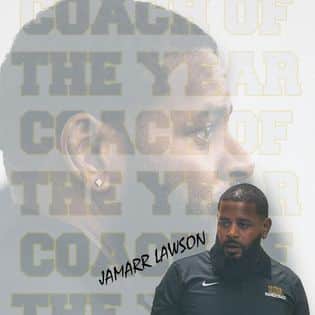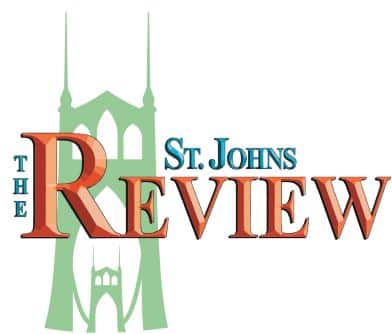Interview with Jamarr Lawson, Roosevelt High School’s Basketball Coach and Portland Interscholastic League Coach of the Year Going Beyond the Hoops

Meet Jamarr Lawson, Roosevelt High School’s Coach of the Year. He works far beyond hoops with his students. He prioritizes emotional and academic support, creating a positive team culture. Learn about his strategies for navigating challenges and the importance of patience. A man dedicated to the development and best practices for our youth.
“What key strategies have you implemented to foster team chemistry and maintain a positive environment, ultimately contributing to the team’s success?”
“Being willing to assent to our culture is one of our biggest things. Do not expect anyone to show up on a day-to-day basis and be perfect. Expect to show up putting your best foot forward and focusing on becoming a better person. This year, we are focusing on integrity and respect as well as getting our athletes to do the right thing when no one is looking. Which means getting to class on time, being respectful to peers and adults, and being coachable. A handshake and a smile go a long way. When you bump into someone, say, Excuse me. Hold the door open for an old lady. Respect what the teacher is asking for. That has a lot to do with our character. Winning goes far beyond the scoreboard. In sports, it really is 90% mental, social, and emotional attitude characteristics that take you a long way.”
“Can you share insights into your approach to beating your opponents, preparing for games, and handling challenges such as injuries or setbacks during the season?” “Keeping a mind frame to be ready to expect the unexpected. Adversity will show up in very different ways in being able to shift and balance that adversity. We know we will not get every call, we have to do some layups we know sometimes people are going to slide into the rail slide. When those things happen, we still have to be positive. We still have to encourage each other. We still have to stick to our discipline and our philosophy, regardless of whether things are working out or not. When adversity hits, we want to throw positives and tangibles at that adversity.”
What are the most crucial skills or qualities a high school basketball coach should possess, and can you share a memorable coaching moment that impacted the team’s success? “I think the biggest thing a coach can do is lead by example. To model the behavior that we are asking of our community. If we do not do that, then who are we? How can we expect them to trust us, and come to us when they are experiencing things? As hard as I am asking them to work, I have to work a thousand times harder. One of the biggest things I can model is patience because different kids are at different levels when it comes to knowledge of the game. I have to have the patience to understand that I need to meet these athletes where they are and see them, not for who they are in the moment or today, but for who they can become. I have to have a lot of patience and understanding. It is really important to invest in relationships. Not just the top athletes or the starters, but everyone on my roster. I am going to be reaching out and being intentional about getting to know our athletes outside of the game. Getting to know who they are, what their goals are, what they are striving for, and what is important to them, and pushing them to be ambitious and to go after them. Investing in these relationships with every player is key because the better we know each other, the better we know each other, and the better we can then all support each other on this journey.
Can you share an example modeling behavior?: “There have been times when my body language does not match the issue; what I am saying, what I am asking for, or what I am saying is okay. There was a time when I had to recommit myself to our agreement. Where I say to them, “Coach has not done a great job at living up to integrity, so I want to take this time to apologize and let you guys know that I make mistakes too, I am human, and I have to repair as well. I do not want to ask of you anything that I am not living up to. Right now, I think that I am telling you guys that it is okay, but my actions are showing otherwise. I want to formally apologize and recommit. I want all of you guys to hold me accountable when you see me stepping out of those alignments.”
The impact of that was that a lot of tension was released. I saw a lot of guys needing to hear that and being realigned. Even a couple of them came up to me and said, “Coach, we really appreciate you because you do not have to always be right as an adult. I have not always experienced that in my time dealing with teachers and mentors. When they were wrong, they couldn’t admit it.” That was really really inspiring to see you get in front and hold yourself accountable. We appreciate that.” That is one of many more moments that hold dear to me. That one just stood out to me.”
Stay tuned as we explore Jamarr’s role with parents, his work in the Portland Public School system over the last 15 years, and his work at the Boys and Girls Club in your next month’s issue of The St. Johns Review Newspaper. Go Rough Riders!
